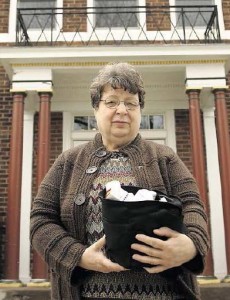By Susan Jaffe | Kaiser Health News | August 12, 2019 | This KHN story also ran on Salon and Next Avenue
Medicare paid for Betty Gordon’s knee replacement surgery in March, but the 72-year-old former high school teacher needed a nursing home stay and care at home to recover.
![]()
Yet Medicare wouldn’t pay for that. So Gordon is stuck with a $7,000 bill she can’t afford — and, as if that were not bad enough, she can’t appeal.

The reasons Medicare won’t pay have frustrated the Rhode Island woman and many others trapped in the maze of regulations surrounding something called “observation care.”
Patients, like Gordon, receive observation care in the hospital when their doctors think they are too sick to go home but not sick enough to be admitted. They stay overnight or longer, usually in regular hospital rooms, getting some of the same services and treatment (often for the same problems) as an admitted patient….

(Photo courtesy of Betty Gordon)
But observation care is considered an outpatient service under Medicare rules, like a doctor’s appointment or a lab test. Observation patients may have to pay a larger share of the hospital bill than if they were officially admitted to the hospital.Medicare’s nursing home benefit is available only to those admitted to the hospital for three consecutive days. Gordon spent three days in the hospital after her surgery, but because she was getting observation care, that time didn’t count.

There’s another twist: Patients might want to file an appeal, as they can with many other Medicare decisions. But that is not allowed if the dispute involves observation care.
Monday, a trial begins in federal court in Hartford, Conn., where patients who were denied Medicare’s nursing home benefit are hoping to force the government to eliminate that exception. A victory would clear the way for appeals from hundreds of thousands of people. [Continued at Kaiser Health News, Next Avenue or Salon]
…



 n., she could have bought a three-week supply. In South Florida, Pearl Beras, 85, of Boca Raton, Fla., said her hospital charged $71 for one blood pressure pill for which her neighborhood pharmacy charges 16 cents. Several other Medicare patients in Missouri were billed $18 for a single baby aspirin, said Ruth Dockins, a senior advocate at the Southeast Missouri Area Agency on Aging.
n., she could have bought a three-week supply. In South Florida, Pearl Beras, 85, of Boca Raton, Fla., said her hospital charged $71 for one blood pressure pill for which her neighborhood pharmacy charges 16 cents. Several other Medicare patients in Missouri were billed $18 for a single baby aspirin, said Ruth Dockins, a senior advocate at the Southeast Missouri Area Agency on Aging.